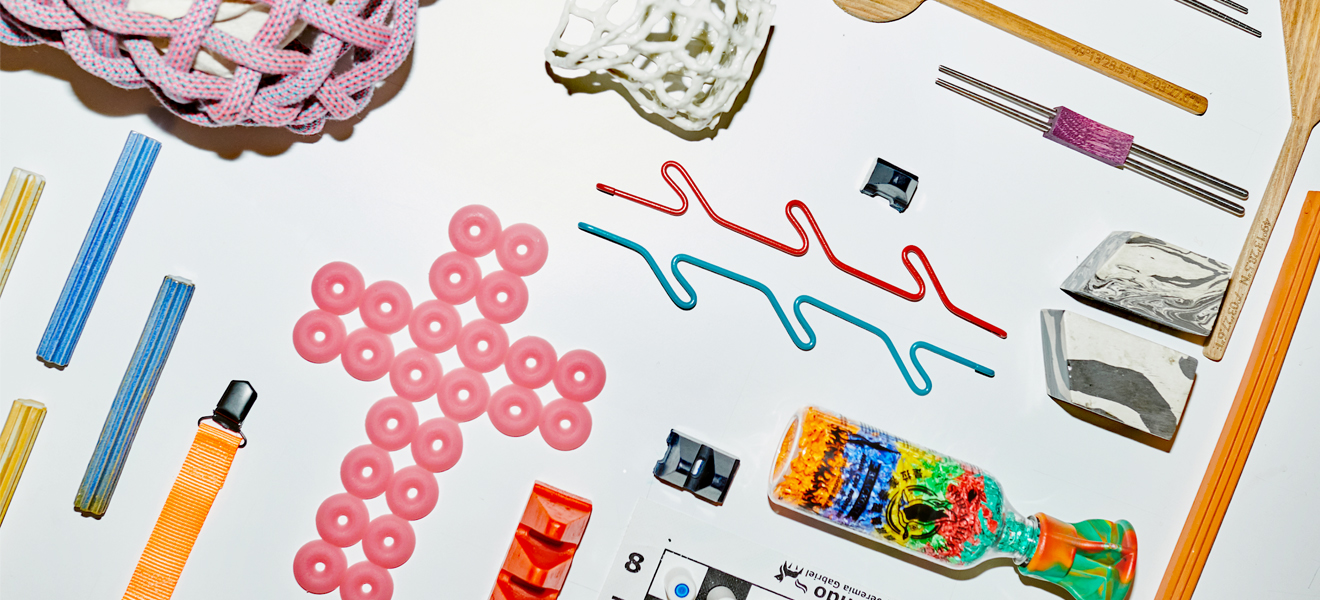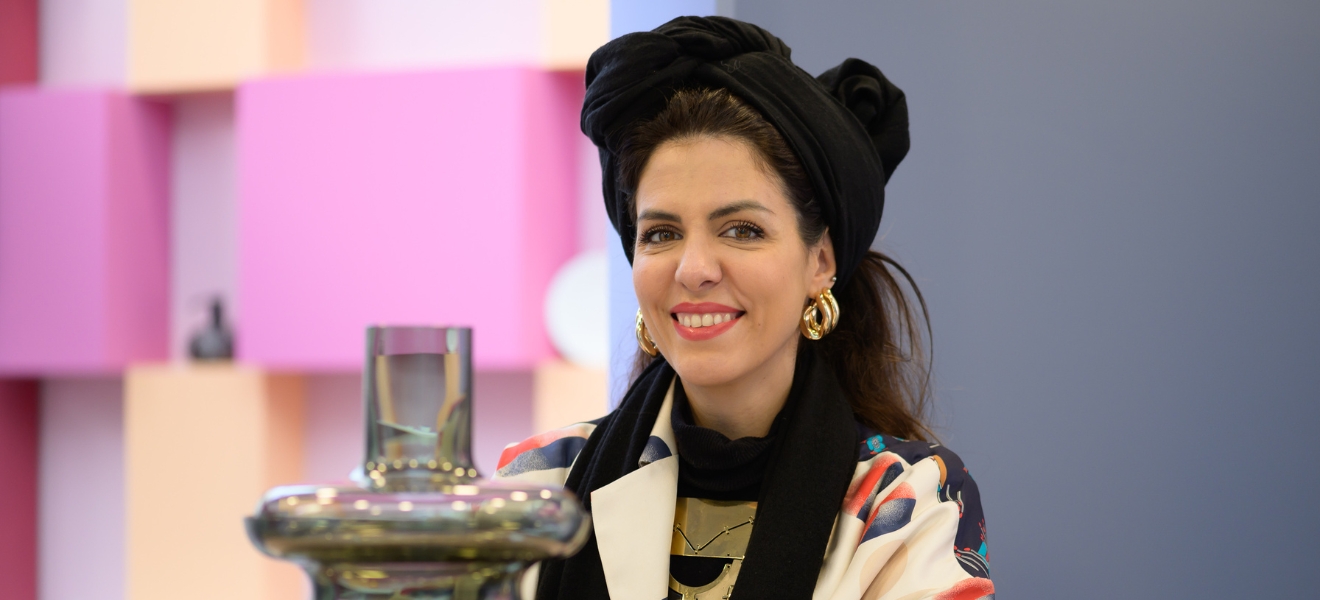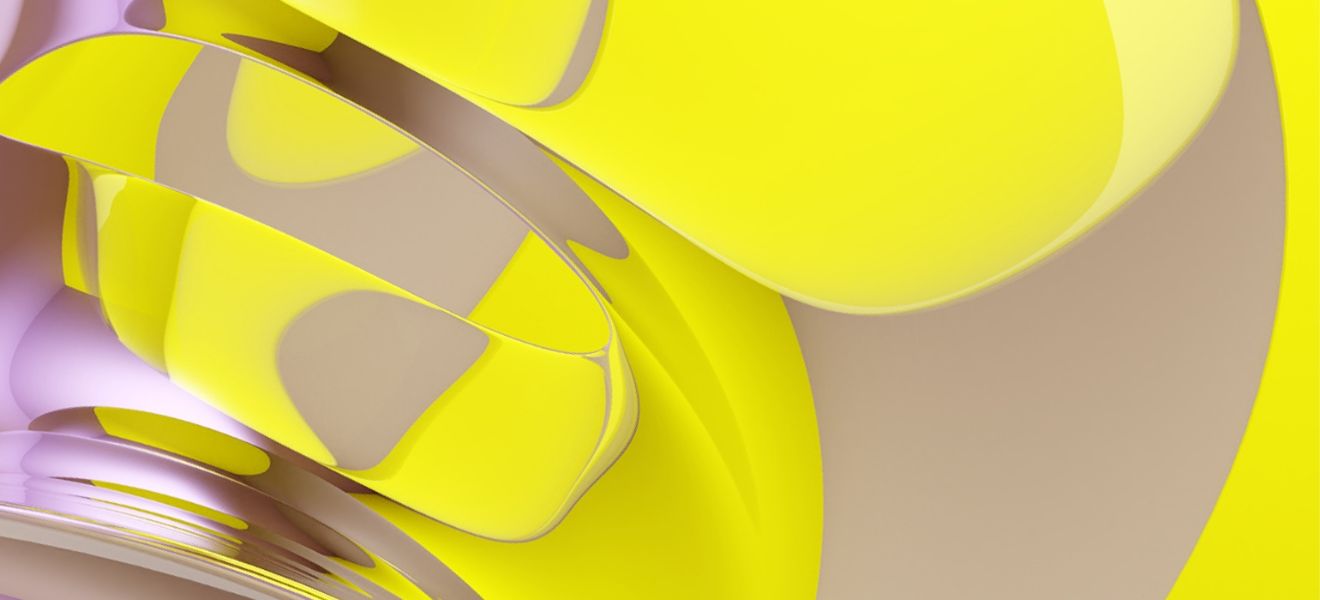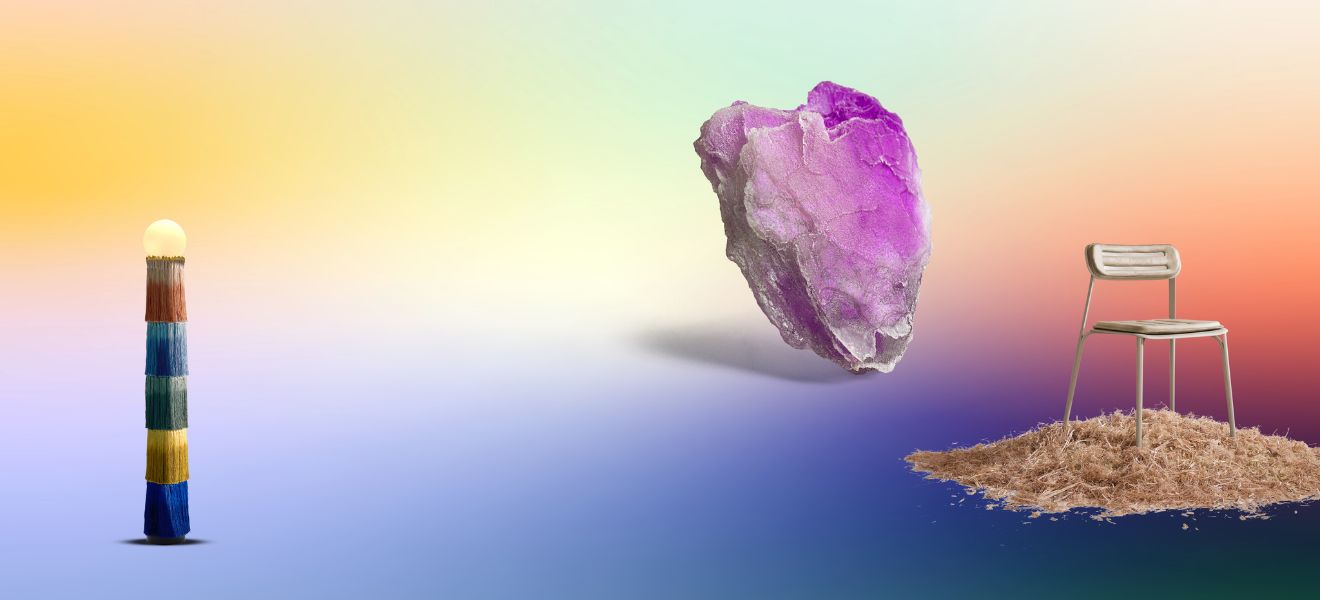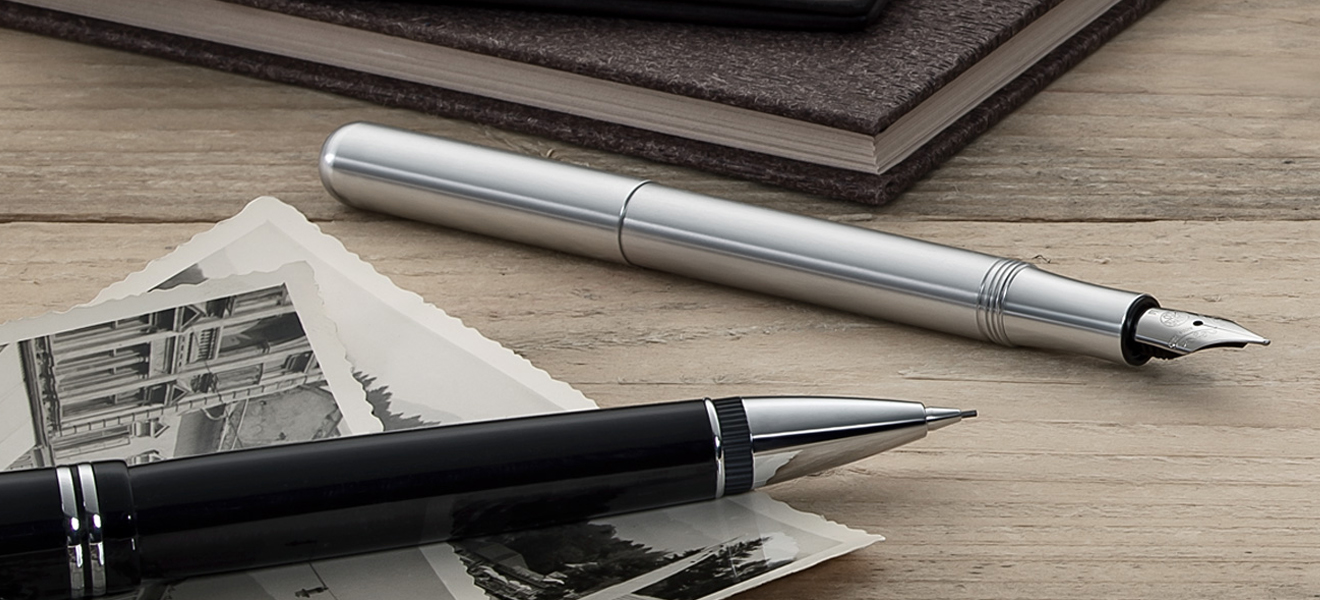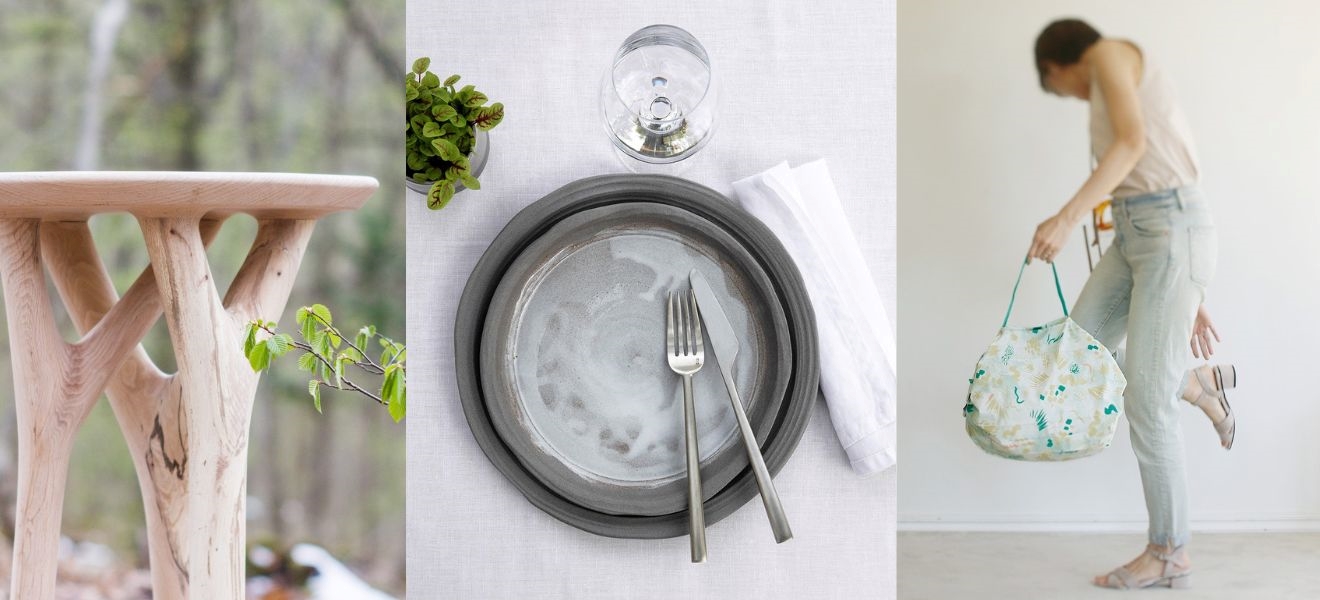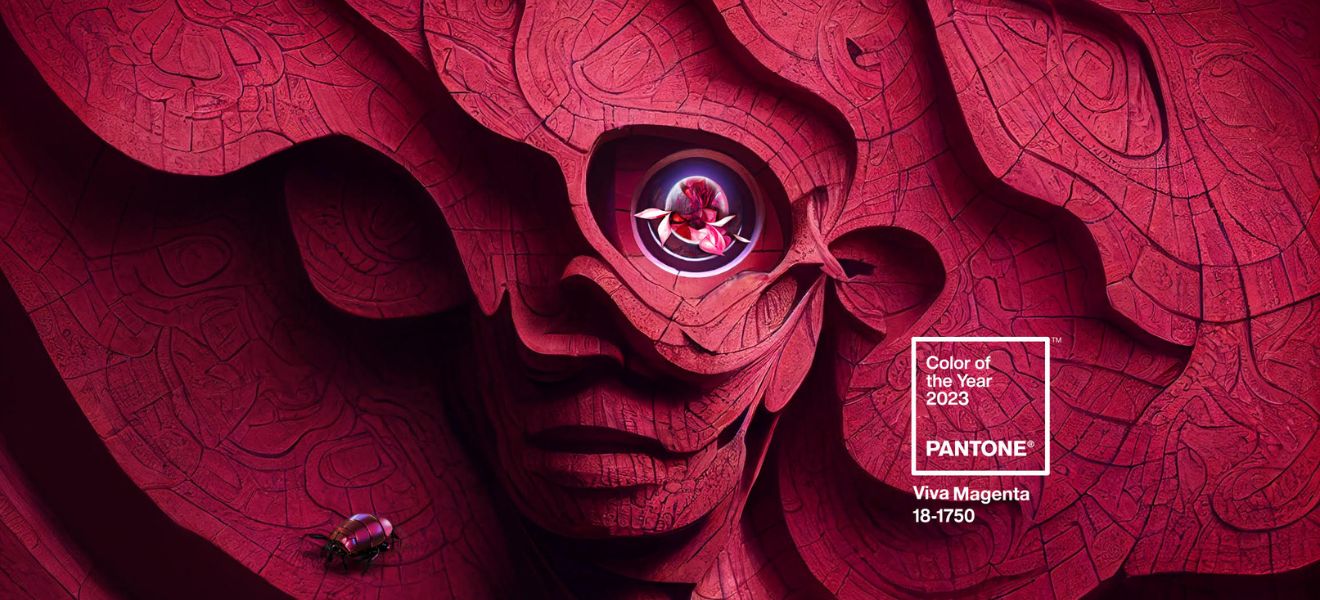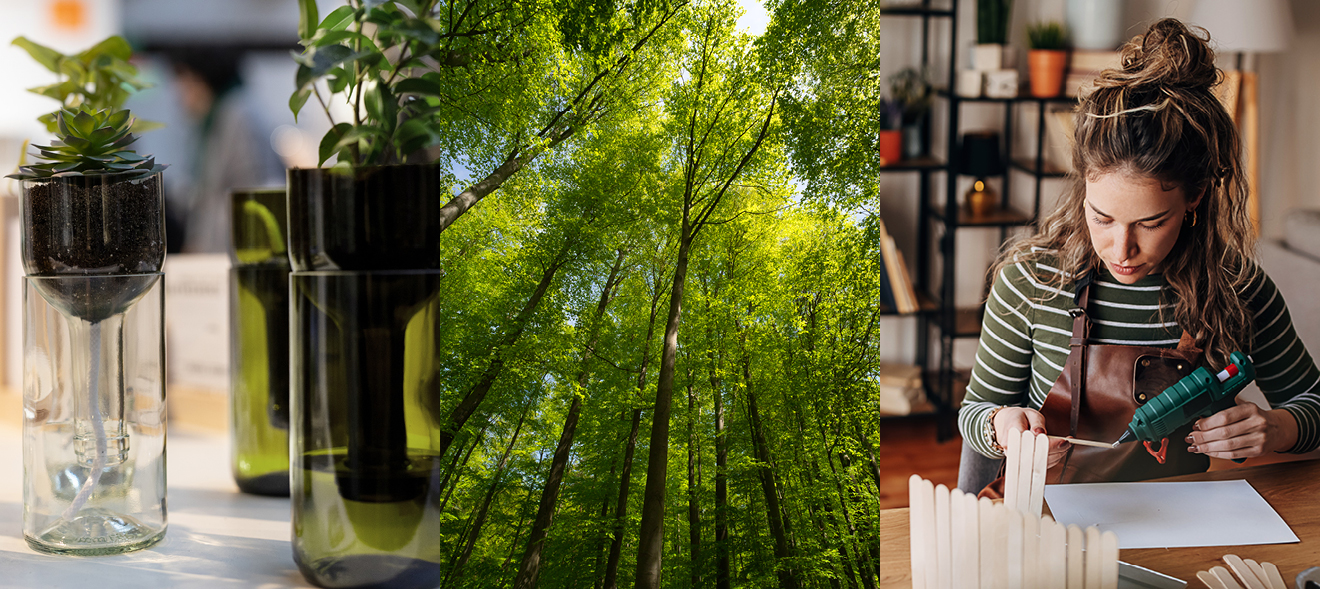Circular economy, upcycling, alternative materials and transparent supply chains: Sustainability is the big topic in the consumer goods industry. The concepts behind this are as multifaceted and exciting as the companies themselves – this was also impressively illustrated at Ambiente 2023. A retrospective and outlook on how the beautiful can turn into something even better.
Living trends, gifts, personal accessories and 1001 ideas for the creatively laid table. It is the pleasant aspects of life that make up the product world of the consumer goods industry. What is currently changing is the demand for the ecological and social compatibility of this special world of goods. In this context, crushing news such as missed climate targets, natural disasters, pandemics and wars are creating a new kind of urgency. And companies are taking action. Thus, what futurologist Matthias Horx is talking about in his “Future Report 2023” could be felt at Ambiente 2023: Now is the era in which people tackle the big challenges, act constructively and see the world as a valuable whole.
Guide through the green worlds
Those who set out on this path at the fair could rely on a large network of partners and practical tools. One of these is called Ethical Style by Ambiente. This curated special interest lists a selection of Ambiente exhibitors with ethically or ecologically valuable products. These are marked accordingly in the online exhibitor search, and labels mark the fair stands on site at the show floor. In this way, Ethical Style offers all visitors reliable orientation in the growing range of green products. Exhibitors can apply in six Ethical Style categories:
- Eco-friendly material
- Eco-optimised production
- Fair & social production
- Re-/upcycling design
- Handmade manufacturing
- Sustainable innovation
The international jury is made up of six independent experts. In 2023, Ambiente presented two Ethical Style Spots on the exhibition grounds for the first time. These show selections of the curated products and provide trade visitors with a compact overview of the various topics. This year, 253 exhibitors wore the label – as did all the companies presented below.

Innovations freshly served up
The German family business Koziol shows how sustainable enjoyment can be at home and on the road. The pioneer celebrated its relaunch as a sustainability brand with its 95th birthday. The focus is on the new “Bio-Circular” product line, which is based on a new type of bio circular and recyclable plastic. To produce it, discarded sunflower and rapeseed oils from industry and gastronomy are converted into plastic in a special recycling process. The added wood fibres consist of residues from forest maintenance and paper production. All wood comes from European cultivation.
Transparent and food-safe – this combination poses a special challenge for bioplastics. The Italian brand Guzzini has solved the problem. Their new Dolcevita series comes from the pen of the designer duo Pio & Tito Toso who were inspired by the Venetian art of glassblowing for this line. The colour-intensive, crystal-clear collection for the festively laid table is made of plastic obtained from vegetable biomass residues and biomass waste.

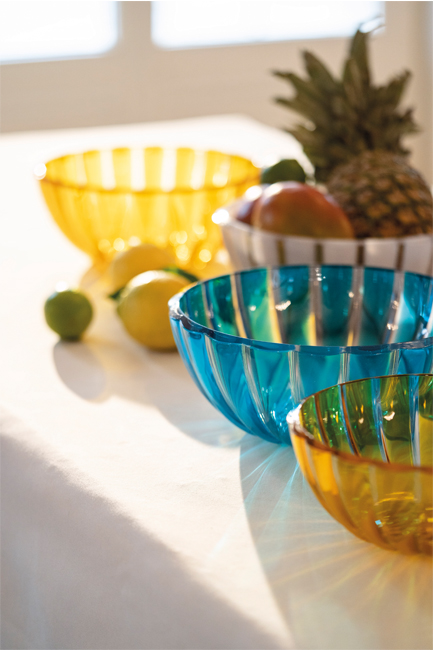
Another alternative is dished up by the Dutch company Originalhome. The collection of handmade drinking glasses, carafes and vases is made from upcycled wine bottles in Zanzibar (Tanzania), where, due to a lack of recycling systems, a lot of tourist waste ends up in the sea or on the rubbish instead of going back into the cycle. The internationally active company was founded by a group of independent professionals who consciously use their know-how for a social and green world.

Sustainable Manufacturing GmbH is looking at sustainable alternatives in interior design with its Recozy brand. The start-up, founded in 2021, has a clear mission: it wants to make the furniture industry a little better, if not revolutionise it, and to do this it clearly relies on the principles of the circular economy. In its own factory in northern Germany, the start-up manufactures lights, home accessories and furniture using the 3D printing process – conserving resources and almost CO2-neutral. The granulates used consist mainly of recycled materials. Printing is only done to order, and over 90 percent of the supply chain is in Europe. All objects are designed in such a way that they can be disassembled into their individual parts at the end of their life cycle and the components separated from each other. This enables the manufactory to completely reuse almost all materials. The design team develops the products themselves or together with specialised designers. In addition, the young entrepreneurs give lectures at universities and schools on the topic of the circular economy and cooperate with social institutions.


Acting in networks
With this holistic approach, Recozy is fully in line with the trend towards working in networks. Because one thing is clear: the challenges may be great, but more and more experienced experts can be found for the required solutions. The Greek brand Flexbook, for example, relies on the know-how of innovative partners for its new notebook line Ecosmile. The “Crush” paper used for it comes from the Italian manufacturer Favini. The list of ingredients of the natural material reads almost like a summer dish: the cover contains lavender, kiwis, almonds, cherries, coffee or olives, depending on the type, and the inner part is made of citrus paper with a good grip. The material is compostable, free of acid and industrial soot (carbon black) and saves 20 percent CO2 compared to conventional production.
Successful, fair and well-connected, the Dutch company Van Verre works in countries along historical trade routes. The collections, ranging from jewellery to home textiles, are created together with local artisans and combine traditional techniques with the idea of upcycling. Many of the long-term projects transform problems into solutions. One example is the bracelet series of the Bozo tribe (Mali). The people here suffer from the pollution of their home river. With Van Verre, the women began to collect the flip-flops that washed up on the riverbank, melt them down and make colourful pieces of jewellery out of them.

Diverse approaches
Whether it’s a disruptive transformation of the company or small, viable steps on the way to a better world: there are hardly any limits to contemporary sustainable approaches. Klatt Objects, for example, produces multifaceted home accessories according to mindful principles in small manufactories and family businesses in the Philippines. 3DCork from Portugal, on the other hand, mixes sustainably sourced cork with local waste such as tennis balls or coffee grounds for its tableware. The manufacturer Keskari presents sustainable solutions for leather, sourcing the natural material for its unique bags from sustainable dairy farms. And DF David Fussenegger presents sustainability with multiple awards. The European Green Award 2021 was followed by the German Design Award 2023 in Frankfurt in the category “Excellent Product Design” for the “Lima” cuddly blankets made of recycled yarn.
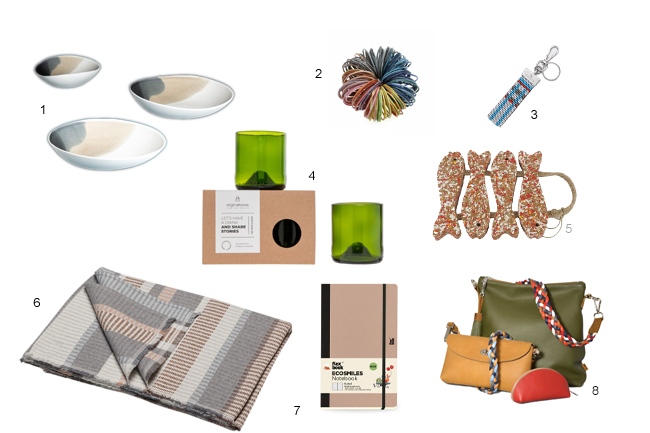

17 goals for a better world
In addition to new materials and manufacturing methods, globalised supply chains are moving into the industry’s focus. General guidelines for states and companies are provided by the Sustainable Development Goals (SDGs) of the United Nations (UN). In their 2030 Agenda of September 2015, all 193 UN member states agreed on 17 goals to promote socio-economic prosperity and ecological sustainability. The goals set range from the fight against poverty and hunger to the promotion of education and equality to sustainable business and technological innovation.
This is the context of MADE51, an initiative of the United Nations Refugee Agency (UNHCR). Together with partners from the business sector, the international team is working to secure sustainable livelihoods for refugee artisans. Workshops are created around the world in which market-ready products are manufactured. The collection includes fashion, gifts and home accessories: sustainable, handmade and fairly traded. Since its foundation in 2018, MADE51 has also received support from Messe Frankfurt through its presence at Ambiente.
Becoming part of the solution
We met Mark Kwami at Ambiente 2023. The designer and co-founder of Things for Good is responsible for the areas of design and product development as well as the expansion of new capacities in the MADE51 team.
How long has MADE51 existed and how did the project come about?
Mark Kwami: MADE51 was launched by UNHCR in 2018 to open up new perspectives for refugees. All over the world, people must leave their homes due to war, persecution, hunger or environmental disasters, especially in Africa and Asia. In 2022, we have crossed the sad threshold of one hundred million refugees worldwide. Almost more fatal is the average length of stay, which has risen to 17 to 20 years. In the camps, people are often condemned to inaction, because very few countries that take them in can offer them employment. MADE51 breaks up this lack of perspective.

How does it work?
Mark Kwami: The idea is quite simple: people bring not only their need but also their skills to the camps. Men with manual know-how sometimes find work this way. Women, on the other hand, have a much harder time, although many of them have admirable handicraft skills. This is exactly where we come in and look for refugees in the camps who have mastered traditional handicrafts, for example. If everything fits, we take on a project, develop products that are produced locally and sold worldwide. With the help of a mapping app, we can call up which resources we have in which regions. This scalability is important. Because once we are on the market with a product, we want to be just as capable of delivering as conventional suppliers.
So MADE51 is no classical aid project?
Mark Kwami: We help, yes, but we are absolutely no charity project in which one dependency substitutes for another. MADE51 pursues a realistic economic model that is self-sustaining and specifically integrates refugees into the global value chain. In doing so, we act very responsibly. To ensure fair wages and good working conditions, we work with the World Fair Trade Organization (WFTO) and local social enterprises. Our selected local partners take care of the training of the refugees as well as the production coordination and export logistics. In return, they receive support to sustainably integrate the respective product line into their product assortment. In addition, MADE51’s marketing efforts bring them into contact with new customers from all over the world. In this way, MADE51 strengthens these partners and also stimulates the economy in the respective region.


What does your product development look like?
Mark Kwami: We want to design strong and exciting contemporary collections. To do this, our design team looks at relevant design trends and brings them together with the patterns, motifs and techniques that are relevant to the culture of our artisans. This is also part of our storytelling, which is an essential element. Because the stories behind the products are what MADE51 is all about. Special collections like the one with the French luxury brand Chloé show the high-quality standards that refugee craftsmanship can meet – despite the limited production conditions.
What are the advantages for the refugees?
Mark Kwami: The benefits are multi-layered and sustainable. On the one hand, women in particular find a long-term reliable source of income in our projects. On the other hand, with the workplaces we offer them a place for community, exchange and security. And of course it is also about the self-esteem of being a productive part of society again.
Sustainability and social responsibility are big issues. Do you notice a change in the market?
Mark Kwami: The awareness has already clearly changed, which was also shown by the many talks at Ambiente. It is important for us to give both retail and design brands the chance to become part of the solution to one of the biggest challenges of our time – the refugee crisis. They can do this by opening up their supply chains to products made by refugees. Our project in Japan shows how well this works. In 2021, we designed bracelets as customer gifts for Uniqlo, one of the country’s largest clothing retailers. In 2022, we followed up with a pilot product, a keychain, which became a regular sale. This year, Uniqlo is including MADE51 in its own collection with several products, in other words, in its normal supply chain. This is what we want.
Outlook
Pioneers like MADE51, Recozy or Van Verre show: Changing beauty is in full swing. And even if the path to a completely climate-neutral and sustainable consumer world still seems a long way off, more and more manufacturers and brands are taking it. Offerings such as Ethical Style are valuable tools for communication and orientation in this process. For Ambiente 2024, exhibitors can once again apply to be included in the Ethical Style programme. The application modalities will be announced in August. You can find more information about the programme here.

